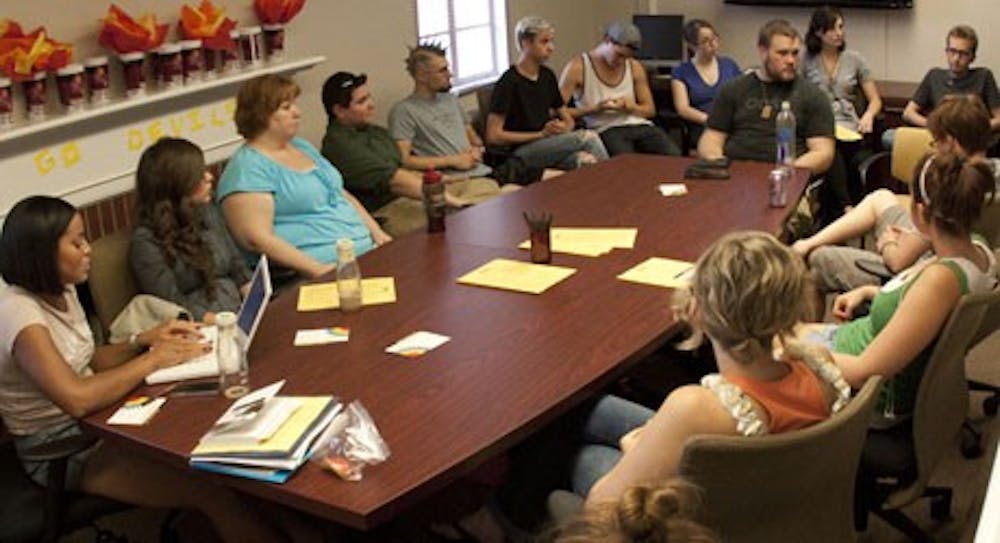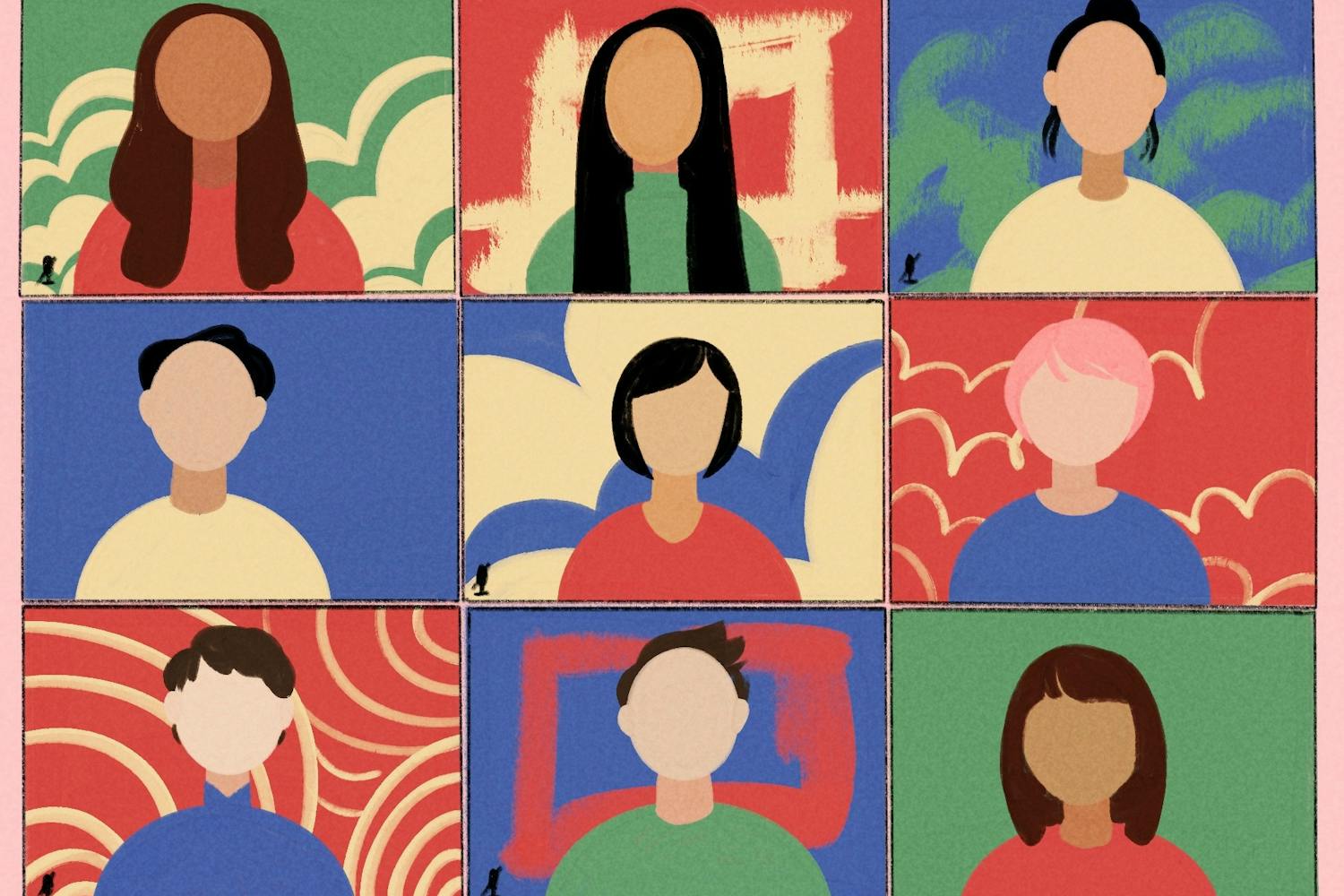Terminology like “gay” and “queer” might seem acceptable in a world where such words are used frequently in television shows and movies. But for people who do not fit these labels, the appropriateness of using such terms might seem unclear.
Both gay and straight students gathered Tuesday on the Tempe campus to discuss these terms and whether they are preferred by the people they label.
The dialogue, “Labels are for Jars,” is a part of the Out Spoken Dialogue Series hosted by LGBTQA services. The purpose of the dialogue was to create a climate in which people can be open to what they identify with and do so with respect and understanding, said Lisa Pittari, the series coordinator and specialist of LGBTQA services.
The event was held in a conference room at the Graduate Resource Center.
The conversation highlighted issues of sexual fluidity, which refers to sexual orientation as an ambiguous term of personal preference, negative connotations associated with the queer community and the limitations of labeling.
Many of the students felt strongly about the use of “gay” or “queer” in regard to how the terms are depicted in society.
While some felt the term gay is very limiting and queer better represents their identification, others believed that queer was a political stance.
However, most students believed queer was defined as deviating from the norm, while gay was a reference to homosexuality.
Religious studies sophomore Cassi Wenzel said she considered queer an umbrella term but did not personally identify with it.
“I would say I’m gay, but I wouldn’t be offended if someone called me queer,” Wenzel said. “I know a lot of people disagree with how people label them, and I can’t speak for everyone.”
Regardless of personal preference, it was clear that not everything is what it seems. Some terms have multiple meanings, and people associate differently to the terms.
Communications freshman Trey Morrow said the dialogue informed him of the meanings behind the labels used to describe the gay community.
“I wasn’t really informed that people label themselves queer, and I didn’t know it was a sexual preference people identified with,” Morrow said. “There is a lot of labeling within the gay community, and I think it’s going to happen no matter what community you identify with.”
Some students said the surrounding environment and audience greatly influences their choice of identification. Some situations are more physically threatening and some listeners are more inquisitive about learning about the gay community than others.
Wenzel said she never felt ASU was a gay-friendly campus.
“If you are just out on campus, you run the risk of being yelled at or being physically assaulted if you address someone and what they said, and it’s a real risk,” Wenzel said.
Ideas of in group and out group, which refers to those within the gay community and those outside the gay community respectively, also led to a discussion of maintaining a double standard.
An individual of the straight community may use a term in a negative sense or some may use a word with ignorance. However, a member of the gay community may also exhibit the same misuse and this promotes a double standard.
Chemistry freshman Casey Erin Clowes said she doesn’t like when others identify her as something she is not regardless if he or she identifies with the straight or gay community.
“I think it’s a personal decision in regard to what you want others to label you as,” Clowes said. “I definitely don’t like the word bisexual to describe myself, but I wouldn’t attack someone for using that word.”
Students said labeling is inevitable and that the most constructive way to defeat being misrepresented is having dialogues.
The Out Spoken Dialogue Series is offered to those seeking an opportunity to discuss issues facing LGBTQ individuals and the community at large. Lectures will be held every Tuesday at 5 p.m. in the Graduate Resource Center.
Reach the reporter at asjohn10@asu.edu





